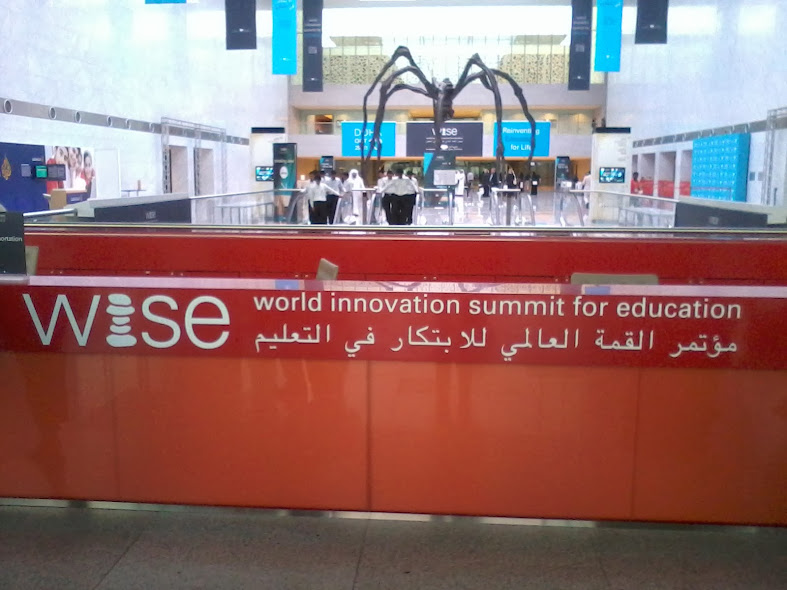Having spent the last seven years of my life in and out of education – teaching in six schools in three different countries -, I attended the World Innovation Summit for Education (WISE 2013) in Doha, Qatar seeking clarity about my capacity and my role in helping to transform education, with a strong focus on Africa. As a young African who has experienced education at all levels in the continent, I am acutely aware of the deficiencies in African education (and I use Africa very loosely, knowing that there are different cultural and socio-economic contexts across the 54 countries on the continent). I have seen the weaknesses of outdated and ineffective curricula, poor learning environments, under-qualified, under-paid and disinterested teachers, distracted students, poor teaching methods and unproductive assessment models.

I have spent much of the last five years brainstorming about how best to lead/participate in the transformation of education in Africa. I have spoken at conferences, and participated in panel discussions on these issues, but none of the talk has culminated in concrete ideas or strategies for moving forward. In the last six months, I have focused attention on collecting data on education systems in Africa, knowing that without adequate information about what exists, it will be fool-hardy to propose transformative solutions. I concluded that it will be helpful to know about prevailing student-teacher ratios in different countries, assessment models (A-Levels, International Baccalaureate, national examinations etc), extra-curricular activities and classroom structures among other things. I dreamed of a web-portal on which two or three clicks could give an overview of education in Mali, or school retention rates in Tanzania, or professional development for teachers in Egypt. I could picture in my mind’s eye how transformative this tool will be.

I was locked in my cocoon of excitement before arriving at WISE 2013, where I heard Professor Tom Cassidy give an overview of 21st Century Learning Skills. I was instantly fascinated and determined to read more about them. The Framework for 21st Century Learning developed by the Partnership for 21st Century Skills has become a kind of holy book for me since then, as I’ve found myself exploring the extents of Global Awareness or Financial, Economic, Business and Entrepreneurial Literacy as themes of learning, or considering how Critical Thinking and Problem Solving can be effectively taught and imbibed in schools. I have come to realize how deficient my education was, but I have also found myself increasingly scared about the potential widening of an already wide gap in opportunities and intellectual depth between African kids and their peers across the world. This fear is propelling me to take decisive actions to help to address this phenomenal challenge that confronts Africa.
As my thoughts evolve, I am sure that a clear strategy will emerge from this season of exposure and motivation. I have no idea right now what my role will be in transforming African education, but I know for sure that I will not be a back-bencher. I care too much about the future of Africa to be a bystander. I need to get involved, right now!
Faith Abiodun
Nice piece faith. I’m not surprised that you’re determined to see change come to our educational system. i think what would be of even more effect would be getting people to know how they can be a part of building the society. Too many young people are clueless and have been for years so when you find your role, track your path and help make known to Africans that they can do something too. There is strenght in numbers isnt that what they say?
proud of you.
Reblogged this on Ifeoluwa Adedeji.
Great piece Faith. The education sector is a sector that does not just need bright young people as you to take part in, the participation should be urgent. The gap between digital natives and immigrants seem far and parallel, too. Thus, we must start working. I share in your dream and play in the field.